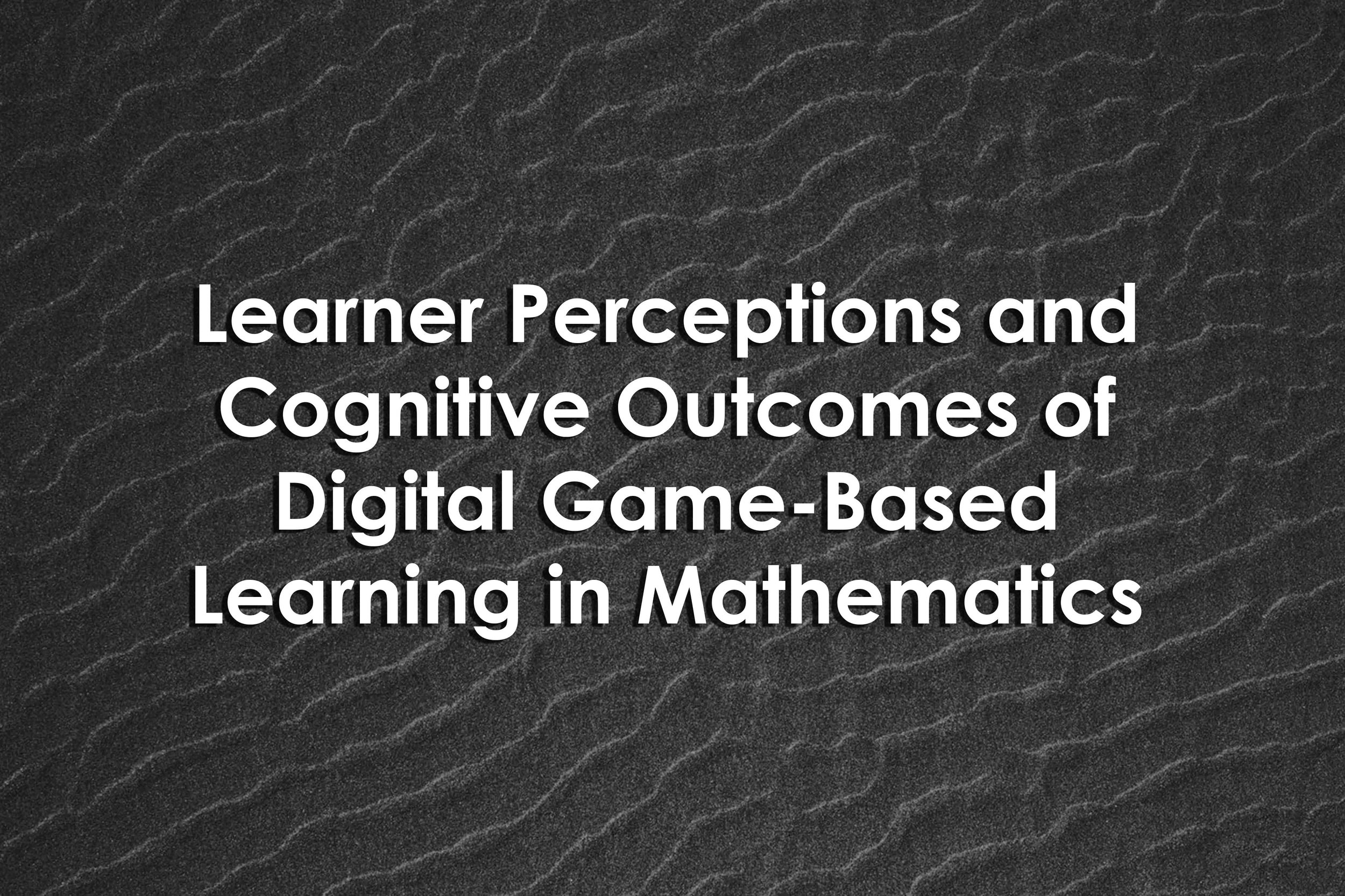Learner Perceptions and Cognitive Outcomes of Digital Game-Based Learning in Mathematics
Learner Perceptions and Cognitive Outcomes of Digital Game-Based Learning in Mathematics
Learner Perceptions and Cognitive Outcomes of Digital Game-Based Learning in Mathematics
By Valdez Lamont Mosley
Abstract
“Despite the recent popularity of digital game-based learning (DGBL), far too little evidence exists concerning its benefits in mathematics. The purpose of this research study was to: (a) determine whether or not DGBL is a viable tool in helping students to improve achievement in middle school mathematics and (b) gauge their perceptions regarding the use of DGBL. This study consisted of a convenience sample of sixth-grade students enrolled at a large suburban middle school in a school division in the Commonwealth of Virginia. This study followed a sequential explanatory mixed-methods approach using a one-group, pretest-posttest research design to collect data from participants before and after DGBL intervention to determine if a relationship existed with improved scores on the Ratios and Proportional Relationships Test. Ratios and Proportional Relationships Test scores were collected from the fall 2020 pre and post-test administrations. Students' Perceptions of Digital Game-Based Learning Survey (SPoDGBLS) responses were also collected from participants before (pre) and after (post) the intervention to determine the changes in student perceptions of DGBL. Small group, semi-structured, open-ended interviews were conducted to collect in-depth information regarding student perceptions of a digital game-based approach for learning mathematics. Results of the study found that on average student participants scored higher on the posttest than the pretest, albeit not significantly higher than the posttest cut score. Results also showed that student perceptions of the usefulness of DGBL improved over the course of the 5-week study. The study recommends that school and division leaders consider incorporating DGBL into mathematics instruction..”
Reference
Mosley, V. L. (2017). Learner Perceptions and Cognitive Outcomes of Digital Game-Based Learning in Mathematics. Virginia Tech. https://vtechworks.lib.vt.edu/handle/10919/103635
Keyword
Digital game-based learning, perceptives, mathematics, mixed methods research

